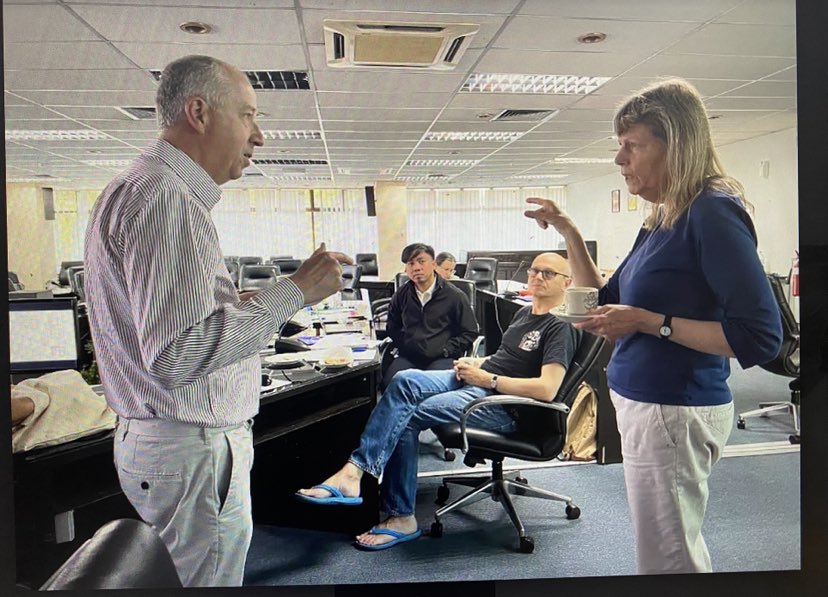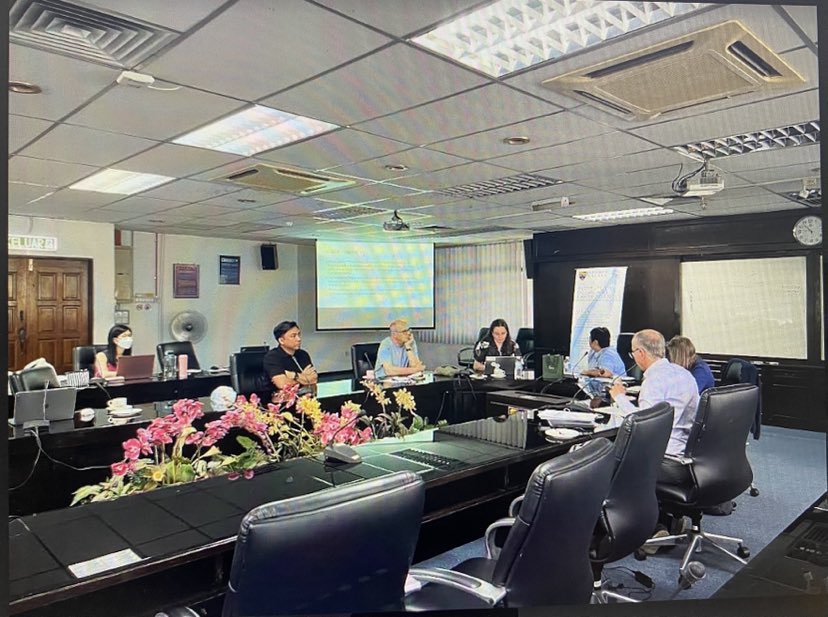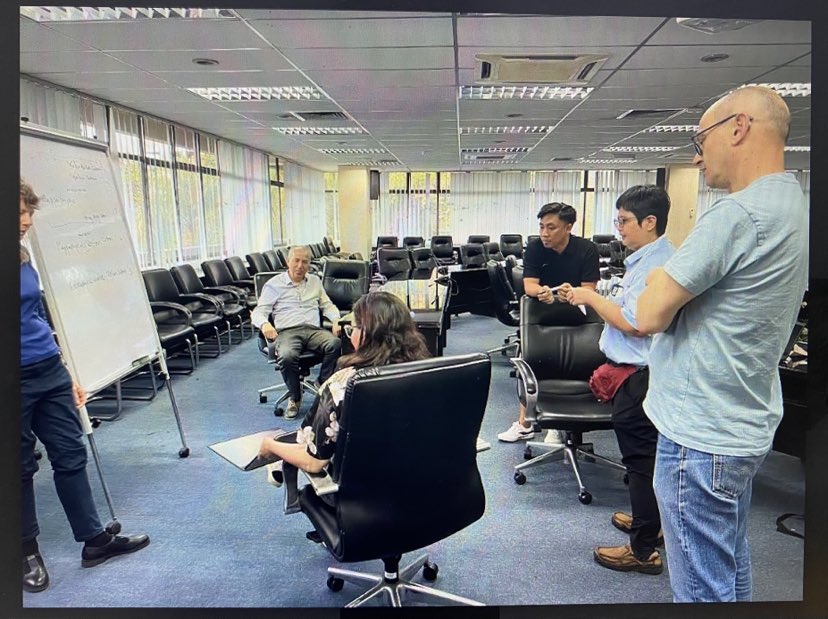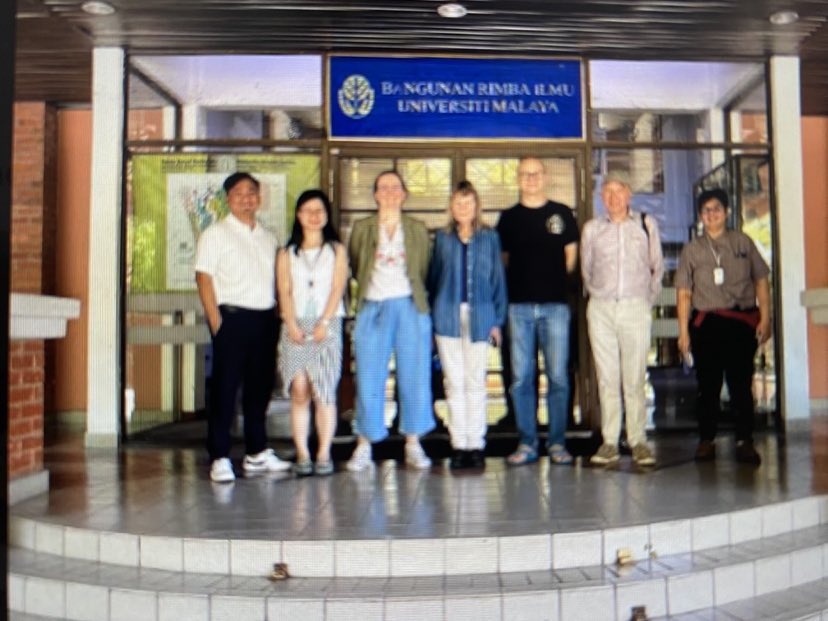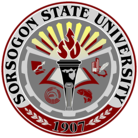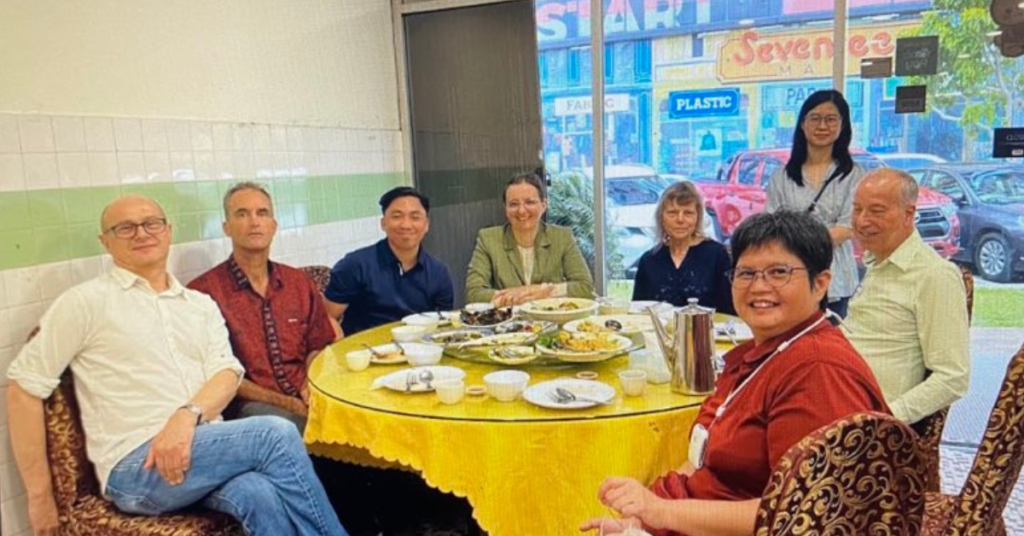Dr. Richard Dumilag, a professor from Sorsogon State University, recently traveled to Kuala Lumpur to attend a consultation workshop on consolidating the taxonomy framework of eucheumatoid seaweeds and the code of nomenclature for cultivated algae.
The workshop was held from May 22–25, 2023, and was attended by global experts, Dr. Phaik Eem Lim and Dr. Poong Sze Wan of Universiti Malaya (Kuala Lumpur, Malaysia), Juliet Brodie of the Natural History Museum (London, UK), Claire M.M. Gachon of the Museum National d’Histoire Naturelle (Paris, France), Giuseppe C. Zuccarello of Victoria University of Wellington (Victoria, New Zealand), and John David of the Royal Horticultural Society Garden Wisley (Surrey, UK).
The primary objective of the workshop was to develop a standardized taxonomy framework for eucheumatoid seaweed and a code of nomenclature for cultivated algae. Eucheumatoids are a group of economically important algae that are sources of carrageenan. Carrageenan is used as a thickener, stabilizer, and gelling agent in a variety of applications including food, personal care products, and pharmaceuticals.
The workshop aimed to bring together global experts in the field of phycology to discuss the current state of taxonomy and nomenclature of eucheumatoid seaweeds and develop a consensus on the systematic naming and classification of eucheumatoid cultivars.
Dr. Dumilag played an active role in the workshop, sharing his knowledge and expertise in the taxonomy of eucheumatoid seaweeds. He participated in several discussions and presented his research on euchuematoid seaweed cultivars in the Philippines. He recently published related work on Reviews in Fisheries Science and Aquaculture entitled, The Diversity of Eucheumatoid Seaweed Cultivars in the Philippines (https://doi.org/10.1080/23308249.2022.2060038). He also contributed to the application of the International Code of Nomenclature for Cultivated Plants (ICNCP), which will provide guidelines for the naming of new cultivated algae. Dr. Dumilag’s participation in the workshop highlights the important role that researchers from developing countries can play in global scientific collaborations.
*Article and photos from Sorsogon State University International Relations Office Facebook Page
